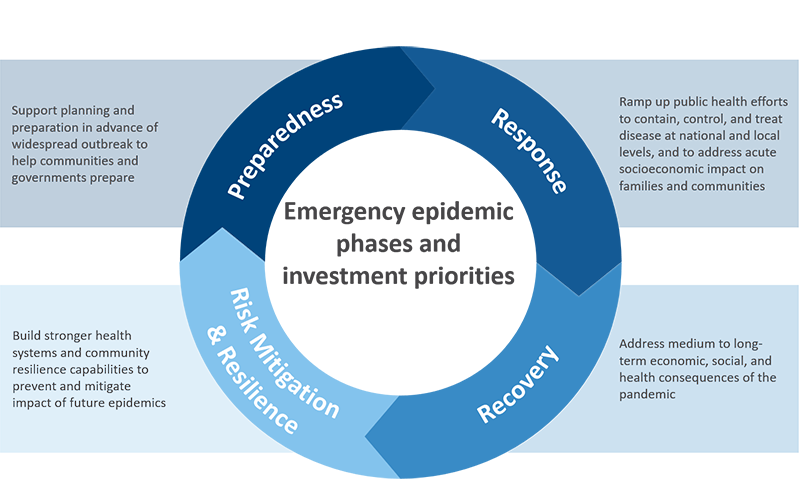Introduction
As India and the world continue to confront the COVID-19 pandemic over the next weeks and months, everyone has a role to play—government at all levels, civil society, philanthropies, multinational actors, the private sector, and individuals. This memo explores philanthropy’s distinctive role—supplementing government and private sector efforts with flexible and often more nimble investments to advance innovation, fill key gaps, and anticipate and address the challenges that will continue or arise after the immediate crisis is past.
This memo is mainly targeted at philanthropies, both domestic and global, including foundations, corporate social responsibility organizations and programs, high-net-worth individuals, and philanthropic collaboratives. We seek both to inspire new giving and to influence the thoughtful deployment of funds already committed in response to the pandemic in India.1 To that end, we have anchored this memo on three key questions. First, why is philanthropy important in the COVID-19 response in India? Second, what thematic areas can philanthropists support, and what types of organizations and interventions are working in these spaces? Third, in light of the response so far, how should philanthropies consider investing in terms of the critical principles that might guide their channeling of resources?
We focus here primarily on the role of philanthropy in the response phase of the pandemic cycle, as illustrated in the figure below, which experts say will last for several months, or longer, and is rightly the focus of so much concern and action currently. There are some districts of India where the disease has not yet been detected in any significant numbers, so we also discuss, where relevant, several organizations that are also supporting preparedness. We recognize the importance of addressing medium-term recovery needs—such as the impact of the crisis on education or urban governance—and of building community and sector resilience in the longer term. And while this memo does not address those longer haul topics, they will be important needs in the months and years ahead.
Pandemic cycle

Source: Adapted from the Center for Disaster Philanthropy “Disaster Life Cycle” and FEMA’s Four-Phase Emergency Management Cycle
NOTES:
[1] Including PM CARES Fund, GiveIndia’s India COVID Response Fund (ICRF), Action COVID-19 Team (ACT) Fund, Marico Innovation Foundation’s #Innovate2BeatCOVID grand challenge, and other donor pledges for COVID-19.
Download the full memo
{^widget|(name)BizForm|(container)BridgespanForms|(defaultformlayout)Standard|(bizformname)Covid_response_1|(widget_displayname)On-line+form|(width)|(height)^}



